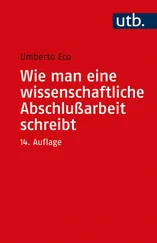The moment was so profound for them, it would be almost impossible to remember. Lying naked they said nothing, shorn of anything to talk about, for desire apparently needed no words. With bodies and souls worn out, they lay side by side, their half-extinguished eyes fixed on the ceiling. The only light came through the thin curtain covering the window, as the sun soared toward noon. Nuraeni was still astonished by the boldness of her own body, and unspeakably elated. There was no need to ask the man how he felt. Finally with no hesitation, the woman turned aside, resting her thigh on Anwar Sadat’s body, and closed her eyes, smiling slightly.
That afternoon Nuraeni came home and no one was conscious of a change in her behavior. Perhaps she hid her joy too well, or the other inhabitants simply paid her too little attention. Anwar Sadat alone saw it, captivated by how he’d been able to make a fresh newlywed out of this woman; and he continued to make himself available to her as their days grew hotter and wilder, in the same bed and occasionally in other places. There were times when Maesa Dewi would go out, and together they would close the doors and curtains, dim the lights, and fuck on the sofa and on the kitchen table, inside the water tub, and once on the floor of his studio.
When she became pregnant, Nuraeni didn’t need a midwife or a doctor to tell her the news. She could feel the change. She didn’t panic at all. In fact she was overjoyed and would sit in contemplation of the future-born, stroking a belly that was not yet protruding, as if this were the only true child she would ever have. It was as if it were her long-awaited firstborn, and she would be filled with tears anticipating the day she would bring it into the world, to hear its cry, to see it grow, and she knew she would love it. She often chanted softly, as if the child were born and she were already soothing its little pains.
It was then that Margio began to sense the change in his mother. She was better dressed, more lively, and prettier than he had ever seen her. Much later on, he would realize that the glow originated with a baby girl nestled in her womb. He whispered to Mameh that their mother was pregnant, and both were awed as they waited for the unexpected baby. At the time Margio still thought the baby was his father’s, although he did wonder how Komar had managed it. For years, probably since the flower jungle came to be, Nuraeni had slept in Mameh’s room, and considering his aging body, and the complaint he once made about a swelling on his organ, Margio was surprised to learn Komar could conceive a child.
Margio imagined how one night Komar would have dragged Nuraeni from Mameh’s room and thrown her into bed or over the chest in the rice storage room and had his cruel way with her. He must’ve done it over and over to get his beleaguered wife pregnant again, which he had done regardless of the fact the two existing children were generally underfed. He didn’t talk about this with his sister, he kept his doubts to himself, and became surprised that after Nuraeni’s belly looked rounder and rounder, Komar didn’t seem to notice. Not a word was said about a baby sibling, and he paid no special attention to his wife.
When Komar bin Syueb finally found out she was pregnant, his rage was out of control. The violence stunned both Margio and Mameh, because Komar had been ignoring his wife for so long, even though he would still beat her up at times, and his violence had ebbed. But this storm was more brutal than anything they had witnessed in a long time, a suppressed rage bursting forth. He dragged her from the kitchen to the center of the house, and slapped her without saying a word. Nuraeni screamed in anger, as if the woman wanted to fight back now after all, perhaps to defend the beloved child in her womb. She called him a beast, a devil, a swine, and Komar replied in kind. Seeing how Nuraeni fought back, Komar became more aggressive still. No longer using the palms of his hands, he hit her with his fists, punching her in the forehead.
Nuraeni was flung against the wall, making the flimsy bamboo siding wobble. Komar came after her, swinging his foot into her calves. Cornered, Nuraeni crashed to the floor. While she lay prone, he kicked her in the hips as well until Nuraeni caught his foot. Revolted by the sight of a woman who would not accept defeat, Komar grabbed her by the hair, hauling the grimacing Nuraeni up onto her toes. As they stood eye to eye, Komar smacked her in the jaw, and this time she staggered to another corner, her face red and raw. She still refused to shed a tear, defending her belly with her hands while he pummelled her.
“You whore!” shrilled Komar, as he threw a tin ashtray at her head and walked away.
Margio and Mameh watched, ashen-faced and horrified. By the time they had recovered enough to do something, Komar had left. Mameh approached her mother, propped her up, and guided her to the mattress. Mameh had always been the quiet child, slow to cry, but at the sight of her battered mother she broke into choking sobs, fanning Nuraeni, caressing her bruises, and inquiring after her needs — did she want a sponge? A cold compress? — while the tears flowed. Nuraeni just shook her head and clutched at her daughter’s hands.
Now Margio understood that the unborn baby wasn’t Komar’s. His father’s incandescent rage had lit up the truth, and for a moment the boy didn’t know which side to take. It was almost impossible to believe that Nuraeni had conceived a child with another man. He couldn’t think who that other man could be.
The shame he felt was visceral. He wanted to retch and staggered away from home to the nightwatch hut, where he continued to mull over all that had happened. No matter where his mind wandered, there was no escape from the stark, stubborn reality. He couldn’t talk to his friends about it, even though some of them asked why he looked so miserable. There was no way he could discuss the matter. If he told his friends, soon everyone in the world would know that his mother had been impregnated by someone other than his father. One part of him wanted to see his damn parents burn. They had conspired to torture him and Mameh. But deep down he couldn’t condemn his mother after all she had endured, and he couldn’t curse a father who had been so grossly betrayed.
For Komar bin Syueb himself, there was nothing more agonizing than what was flaunted right in front of him, a wife pregnant with another man’s child, parading in public. It threw into shadow the nagging realization that he had made his family suffer for years. At the barbershop, he worked in distracted silence. He nearly sliced off a customer’s ear, and left another’s hair a tattered mess. His eyes grew teary with self-pity, as he recalled all the despair-ridden years and tried to trace his mistakes to their origin.
The years had gone by so quickly, life receding in the distance like a train narrowly missed. He recalled his weary youth, when he wandered from one hamlet to another, looking for work in the factories. He would stay at each one for a few months, cutting shoe leather, carrying wheat sacks. After years of this, he found himself ill and penniless. He resorted to his shaving equipment and looked for a shady place under a tree to wait for customers and shave their heads, though he knew he couldn’t make much money that way. When Syueb told him to come home to marry, his only possession of note was a thin gold wedding band, an object he never should have bragged about.
The day of the wedding arrived, and he could see how unenthusiastic his bride was. He had never written the letter she had pined for, and never apologized. It wasn’t that he didn’t want to write nonsense on a pink sheet of paper scented with talc, but rather that he truly didn’t know what to write about. There was nothing interesting about a life under the shade of a tree waiting for customers worried about their unsightly hair. But the woman is mine, he thought. Marriage makes her mine, and she is meant for me. If she isn’t there for me when I want her, I have a right to be angry.
Читать дальше












